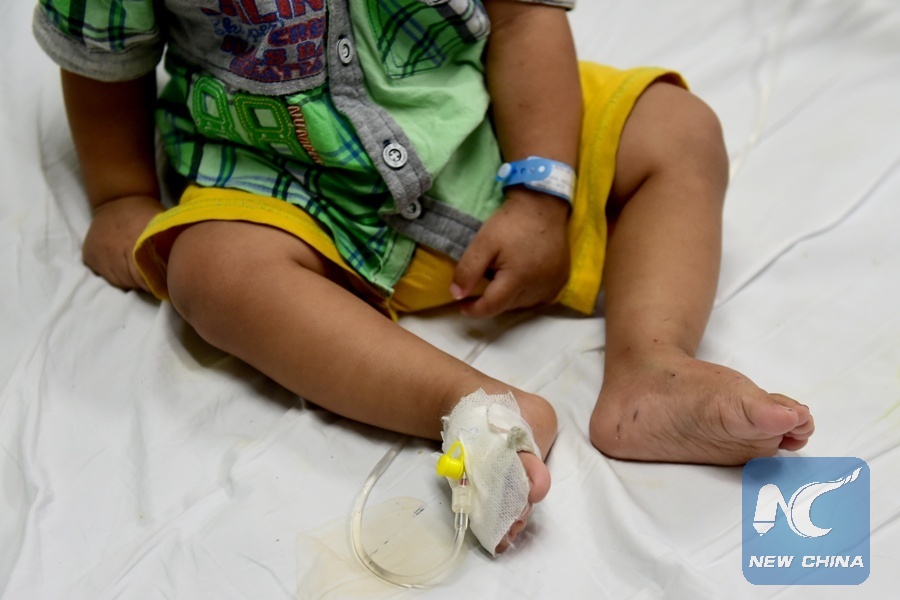
Photo taken on July 3, 2016 shows a child receiving chemotherapy treatment at the Children's Cancer Hospital Egypt 57357 in Cairo, Egypt. (Xinhua/Zhao Dingzhe)
UNITED NATIONS, July 5 (Xinhua) -- UN General Assembly President Miroslav Lajcak on Thursday called for more efforts to control non-communicable diseases (NCD) that are "responsible for two thirds of all global deaths."
At a hearing for preparing the assembly's third high-level meeting on this matter, Lajcak described the challenge posed by NCDs as "massive."
"For the first time in history, they are killing more people than infectious diseases," he said. "NCDs are now responsible for two thirds of all global deaths."
He urged participants of the hearing not to accept the phenomenon because NCDs are preventable.
While acknowledging actions in this regard, such as limits on the use of tobacco, prohibitions on sugary drinks and building of new cycle tracks, Lajcak said, "We have not seen enough of them."
He further warned that the current efforts are not on track to meet the target set out in the 2030 Agenda for Sustainable Development by the deadline.
The assembly's high-level meeting slated for Semptember is expected to bring heads of state and government together on NCD prevention and control, for which Lajcak expressed his wish to "act as a turning point."
"When we look back, many years from now, I hope that we will view the high-level meeting as the moment when we changed our global response to NCDs..... for the better...and for good," he said.
In addition, the UNGA president addressed the issue of poverty in relation of NCD control, saying not only does poverty make NCDs more destructive, but the rapid rise in NCDs could in turn hamper efforts to reduce poverty.
According to UNDP, between 2010 and 2030, the financial toll of NCDs could end up being as high as 20 trillion U.S. dollars for lower middle-income countries.
Lajcak said the huge amount of money could instead be spent on fighting poverty.

